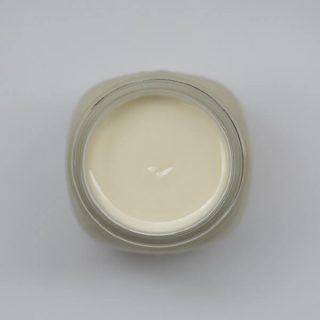How do you know if the skincare product you are using is truly natural? Are the terms “natural”, “green”, “organic”, and “clean” just buzzwords used by cosmetics and skincare companies to shift products? The Derm Review recently surveyed the 100 best-selling natural skincare products on Amazon.com, to find out how many of these products contain synthetic ingredients. The result will surprize you.
Key findings
According to The Derm Review the majority (58%) of natural skincare products they analyzed in a survey are simply not natural.
-
Only 42% of “natural skincare products” are truly natural
-
Majority (58%) of skincare products marketed as “natural”’ contain synthetic ingredients
-
Skincare products marketed “natural” are 24% more expensive than “regular” skincare products
-
All of the “natural” serums in the study contained at least one synthetic ingredient
-
Nearly eight in ten (78%) “natural” face masks contains synthetic ingredients
-
“Natural” facial toners cost on average 479% more than “regular” toners.
-
“Natural” skincare products contain on average 2.4 synthetic ingredients
Only 42 out of the 100 products surveyed claiming they were natural were actually that!
Skincare biochemists from The Derm Review analyzed the ingredient lists of the 100 best-selling skincare products containing the word “natural”. The study found that out of the 100 best-selling natural products, only 42 were truly natural. The majority (58%) of products included at least one synthetic ingredient.
The average number of different synthetic ingredients used in “natural” skincare products was found to be 2.4.

Photo by Megumi Nachev on Unsplash
The Cost of Natural Skincare Products
The study found that the price of skincare products marketed as “natural” were on average 24% more expensive than skincare products that didn’t contain the word.
The most expensive “natural” skincare products were facial toners. They were found to cost 479% more than “regular” toners.
Why should you care whether it is natural or not?
You may be making active choices about using natural products for a variety of reasons. Some of us choose natural products because we do not want to use harmful chemicals on our skin. High-profile celebrities like Miranda Kerr, Jessica Alba, and Gwyneth Paltrow are very vocal about the use of items free of harmful chemicals and growing numbers of consumers are following their advice. There are also those of us who simply want to buy a more natural product in order to protect the planet. We believe if it is good for us, it has to be good for the environment.
But there’s just no guarantee!
“Sadly, with no official standard in place guaranteeing quality and protecting against fraudulent claims, products can be labelled “natural” even if they only contain a minute percentage of natural ingredients” – GlobalCitizen.org
Top synthetic ingredients found in natural skincare products
Ethylhexylglycerin is the most commonly used synthetic ingredient and was found in 24% of all the “natural” products. It is deemed safe and is generally used in low concentrations in skincare products however, it can cause minor irritation to the skin and eyes if high concentrations are used.
The second most commonly found synthetic ingredient was Phenoxyethanol which was found in 22% of the products. Like Ethylhexylglycerin, it is considered safe but can cause irritation when high concentrations are used. It is used mainly as a preservative and antimicrobial agent used to help your products last longer and prolong their safety and efficacy.
Sodium Ascorbyl Phosphate comes up as the third most widely used synthetic agent and was found in 13% of the “natural” products. While being a synthetic agent, it is generally safe for all skin types, and is a type of vitamin C.
Products containing synthetic ingredients
Out of the product types The Derm Review looked out, all of the serums contained at least one synthetic ingredient. Out of the “natural” face masks on the list, 78% contained synthetic ingredients, while 58% of moisturizers and 55% of cleaners contained synthetic agents.
Are all synthetic skincare ingredients bad?
According to TheDermReview “No, and not all natural products are good. Some chemical ingredients have been scientifically developed to be more gentle on our skin and more cost-effective to formulate. Other synthetic ingredients are processed to mimic bioavailable products that may be rare or threatened in the wild, and are aiming to prevent damage to biodiversity and environmental destruction.”
 The growing popularity of natural products
The growing popularity of natural products
With “natural” the most googled among them (followed swiftly by “without preservatives” and “cruelty-free”), and a 2019 study by Statista revealing 58% of women in the US seek these components when shopping for beauty, one can pretty much gauge the popularity of such products, products that promise to work wonders for our skin, all whilst “saving the planet”.
How do you know a product is natural or not?
For consumers, it can be difficult to tell the difference between the “good” and “bad” when reading a skincare label. Some long chemical-sounding words can sound “scary”, and many consumers may feel that the product feels safer if they see ingredients they recognise on the list.
Better for you?
When it comes to the synthetic versus natural skincare debate, it is not black and white. However, synthetic products are often demonized, and as a result, consumers seek out to find natural alternatives. Indeed, a 2018 survey showed that the vast majority of people (90%) believe that natural or naturally-derived beauty ingredients are better for them.
Elle MacLeman, Skincare Biochemist at The Derm Review says, it’s important to remember though, that just because something is natural doesn’t mean it’s safe. “Some natural ingredients, such as essential oils, could be poisonous if used incorrectly, and many natural ingredients can cause more irritation to the skin than synthetic alternatives.”
The bottom line
“As we’ve established, natural is not always better, but despite that, consumers have the right to know whether the products they buy are indeed natural or not. Sadly many brands overuse the word “natural” in their marketing in order to sell more products, and that feels misleading and deceptive. Especially as our research found that these products tend to be priced higher while not necessarily being better, safer or more environmentally friendly.” – Elle MacLeman, Skincare Biochemist at The Derm Review
“I think one of the problems is that the industry is pretty much unregulated when it comes to making claims. For instance, it’s common to see ‘chemical-free’ products on the shelves, but that doesn’t make any sense as even water is a chemical.”
Methodology
The Derm Review searched Amazon.com during July 2021 for phrases such as ‘natural skin care’, ‘natural moisturizer’ and looked at the top 100 best-selling products that came up within the search results. For pricing, we compared the $ per Fl Oz on products marketed as “natural” with the same type of skincare products that didn’t contain the word natural.
References:
This article has been sourced from the full findings of TheDermReview.com research. https://thedermreview.



 The growing popularity of natural products
The growing popularity of natural products![women [longevity live]](https://longevitylive.com/wp-content/uploads/2020/01/photo-of-women-walking-down-the-street-1116984-100x100.jpg)










